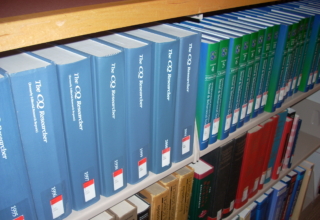
Case Study: Producing and Publishing Coaching Research
The Development of Coaches project was launched through an informal conversation with psychotherapy researcher David Orlinsky and coach educator Linda Page based on David’s experience with the development of psychotherapists project. David generously shared the Development of Psychotherapists Survey (DPS) which had been used in an extensive, long-term study with that population. So we had the advantage of a well-designed instrument to adapt and did not have to start from the ground up. This offered (we thought) some credibility and validity to the study.
My particular interest, as an educator, was in uncovering some empirical data that would support the development and refinement of coach education and training programs and to also inform discussions on the distinctions between practitioners in the two fields of practice.
Setting Up the Project
We spent considerable time reviewing and adapting the original instrument to make it relevant to the coaching field. We also discussed the variables addressed in the sections of the survey and added one open-ended question to investigate how coaches perceive particular personal experiences influence their coaching.
After several rounds of refinement and revision, the first version of the survey was created on Survey Monkey. We drafted an invitation letter and the five members of our group who are coaches sent the invitation to coaches within his/her personal and professional network inviting folks to help us test the version and give us feedback. Our networks were broad and diverse, encompassing coaches at various stages of experience, expertise and specialization.
Feedback from the coaches who responded led us to make several revisions including shortening the survey (it was initially quite lengthy in order to be as comprehensive as possible and address as many factors as might be relevant in coach preparation). Many of the initial testers said that it took too long to complete (20-25 minutes). We made choices re: making some questions required and others optional (some respondents said that some of the questions were too personal–e.g. questions about their feelings while coaching or about family patterns); and allowed people to leave off taking the survey and return to it at a later time.
We gained in-kind support from ICF and the revised version was put on a Vovici platform through ICF. The open invitation to participate was issued through ICF newsletters and mailings, and through collaborative members again reaching out through their networks, including ACTO, GSAEC and LinkedIn. DCRC members also did presentations to various coaching groups and shared the link. The invitation invited any coach who received the invitation to pass it along to any coach of their acquaintance. There were no restrictions on who could take the survey.
Outcomes of the DCRC Project
Despite the broad and repeated outreach, the shortened questionnaire and the opportunity to stop/start, the results were a disappointing 185 out of coaches globally. One article did result from the study (Campone and Awal, 2012).The five life events which respondents most frequently identified as having significant impact were: Personal events (such as illness, divorce or family situations); Formal Coach Training; Work Experience; Practice Coaching; and Receiving Coaching/Mentoring. Different types of significant events affected different aspects of the coaching commitment and engagement. These impacts included:
• Insight about one’s self and/or about one’s world: including a restructuring of the interpretive framework, a realization arising from this, and a greater sense of empowerment over one’s life and the world around.
• Change in Knowledge. This category included changes in conceptual knowledge (e.g. a change in cognitive framework, theoretical understanding or knowledge base) and practical knowledge (e.g. learning how to do something new or differently).
• Change in Skills. Enacting different behaviors or the acquisition of specific skill sets relevant to coaching practice.
• Empathy. Empathetic understanding of or identification with the experiences and feelings of others.
• Self-Worth. Self-recognition or affirmation.















